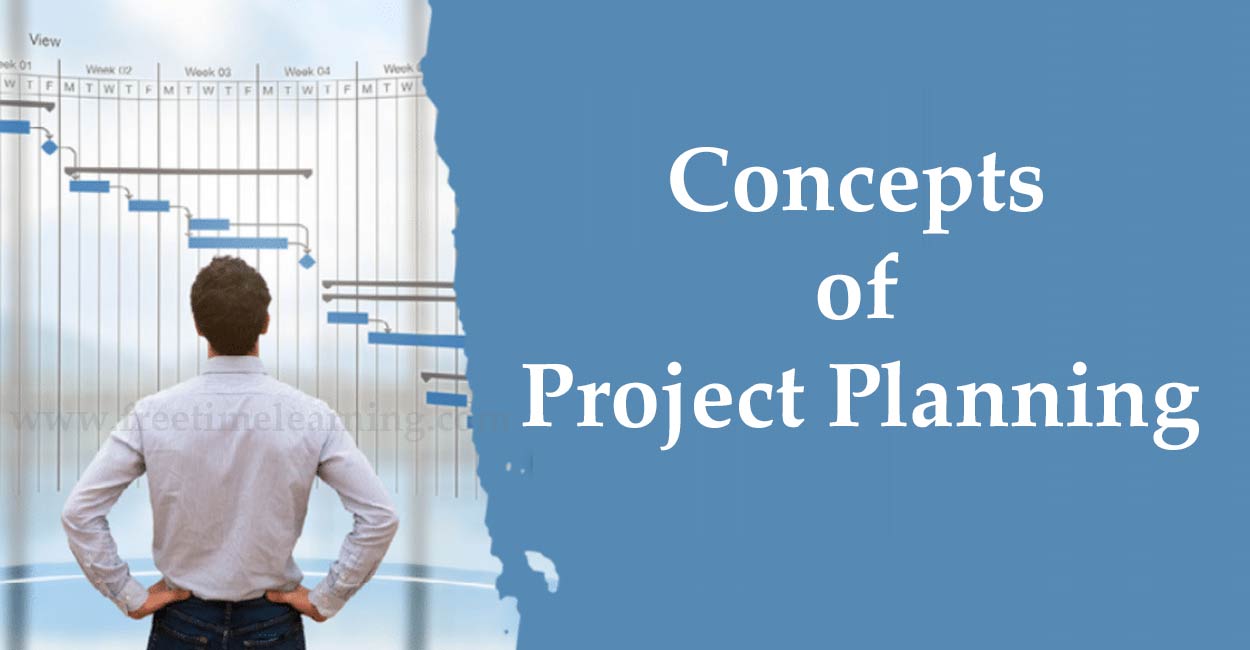What is project planning?
Project planning is the process of defining, organizing, and outlining the tasks, activities, resources, timelines, and deliverables required to achieve specific project objectives. It involves creating a detailed roadmap that guides the project team in executing the project effectively and efficiently.
In general, planning includes all those activities that result in developing a course of action. These activities guide future decision-making. Similarly, project planning includes all those activities that result in developing a course of action for a one-shot occurrence with a specific beginning and ending point. These planning activities guide the project manager in future decision-making about the project.
Project planning refers to the plans of an organisation to build up production or service capabilities, to diversify its business or to extend its existing capacities Now-a days projects undertaken by different business organisations are very large and take a number of years before commercial production can start. Thus, in case of large and complex projects, project planning is essential for close coordination in different cost and time activities and ultimately successful completion of the project.
* Identifying and specifying all activities to be performed.
* Establishing the order in which different activities must be performed (precedence relationships).
* Establishing cost and time estimates for different activities.
* Calculating expected completion costs and times.
Why is project planning important?
Project planning is important at every phase of a project. It lays out the basics of a project, including the following:
* scope
* objectives
* goals
* schedule
Planning enables project managers to turn an intangible idea into reality. Key purposes of planning include the following:
* facilitate communication and provide a central source of information for project personnel;
* help the project sponsor and other key stakeholders know what is required;
* identify who will perform certain tasks, and when and how those tasks will happen;
* facilitate project management and control as the project progresses;
enable effective monitoring and control of a project;
* manage project risk;
generate feedback useful for the next project planning phase.
The main components of a project planning :
Project planning is a systematic approach to defining, organizing, and outlining the tasks, resources, timelines, and deliverables required to successfully complete a project. It involves several key concepts that are essential for effective project management. Here are some important concepts of project planning :
1. Project Scope :
The project scope defines the boundaries and objectives of the project. It outlines the specific deliverables, features, and functions that will be included, as well as what is excluded from the project. Defining the scope is crucial to ensure that the project stays focused and manageable.
2. Work Breakdown Structure (WBS) :
The WBS breaks down the project into smaller, more manageable components or tasks. It organizes the work into a hierarchical structure, dividing it into smaller work packages. This helps in understanding the project's complexity, assigning responsibilities, and estimating the effort required for each task.
3. Project Objectives:
Project objectives are the specific goals that the project aims to achieve. These objectives should be specific, measurable, achievable, relevant, and time-bound (SMART). They provide a clear direction and purpose for the project team and serve as benchmarks for evaluating project success.
4. Project Timeline :
A project timeline outlines the sequence and duration of tasks, activities, and milestones throughout the project. It helps in scheduling and coordinating activities, setting deadlines, and tracking progress. Timelines can be represented in various formats such as Gantt charts, PERT charts, or project management software.
5. Resource Planning :
Resource planning involves identifying and allocating the necessary resources for the project. This includes human resources, equipment, materials, and budget. Effective resource planning ensures that the right resources are available at the right time to complete project tasks efficiently.
6. Risk Management :
Risk management involves identifying potential risks and developing strategies to mitigate or respond to them. This includes assessing risks, creating contingency plans, and monitoring and addressing issues as they arise. A proactive approach to risk management helps minimize the impact of unforeseen events on the project.
7. Communication and Stakeholder Management :
Communication is critical for project success. Establishing effective communication channels and strategies ensures that information is shared, feedback is received, and project stakeholders are engaged and informed. Clear and regular communication helps in managing expectations and maintaining project alignment.
8. Quality Management :
Quality management ensures that the project deliverables meet the defined standards and requirements. It involves establishing quality criteria, conducting quality assurance activities, and performing quality control checks throughout the project. Maintaining high-quality standards helps in delivering successful outcomes.
9. Monitoring and Control :
Monitoring and control involve tracking project progress, comparing it against the planned objectives, and taking corrective actions as needed. This includes monitoring project metrics, conducting regular status meetings, and making adjustments to the project plan when necessary.
10. Documentation and Reporting :
Documentation and reporting involve capturing project information, decisions, and outcomes for future reference. It includes maintaining project documentation, generating progress reports, and documenting lessons learned. This documentation serves as a valuable resource for future projects and helps in organizational learning.
These concepts form the foundation of project planning and are crucial for successful project execution. By incorporating these concepts into the planning process, project managers can effectively define, manage, and complete projects, meeting objectives and delivering desired outcomes.
